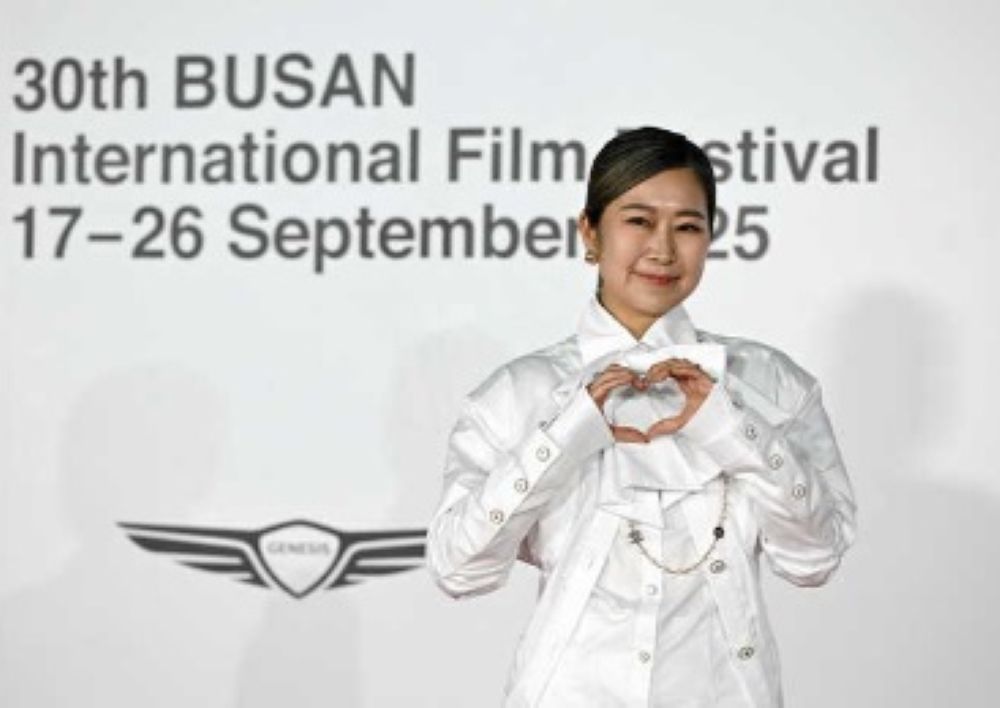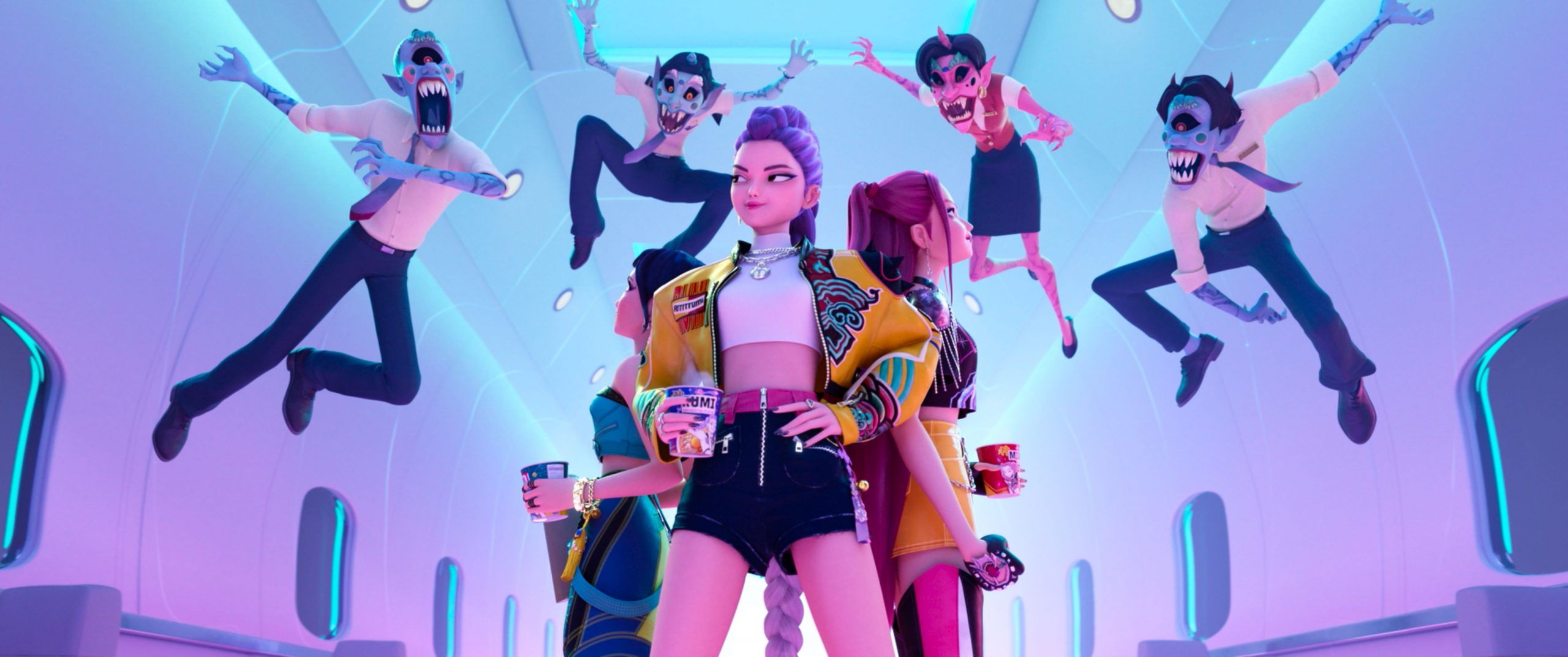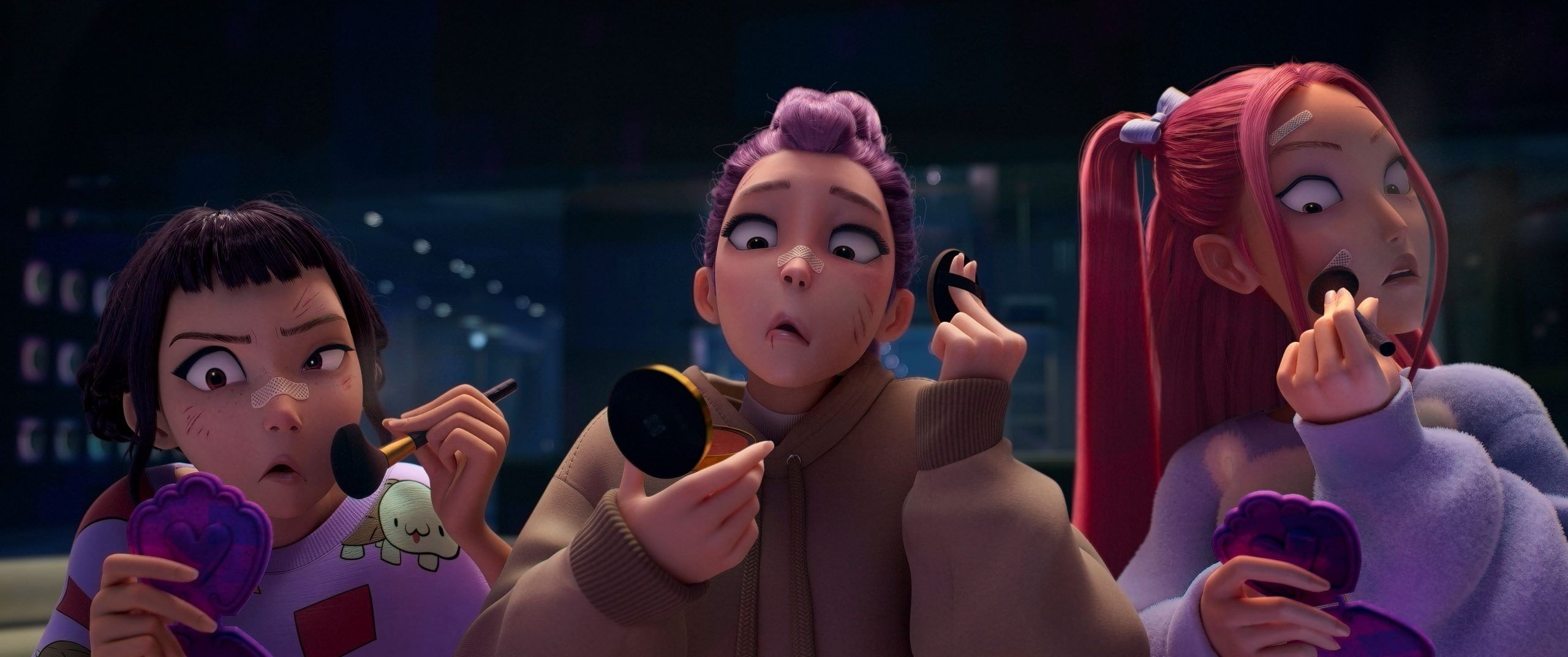
To say filmmaker Maggie Kang’s first feature film, K-pop Demon Hunters, is a success would be a wild understatement.
Based on a story conceived by co-director Kang, the animated film about a K-pop girl band that moonlights as demon hunters, began streaming on Netflix on June 20. It became the most-watched original title in Netflix history with 325 million-plus views.
A sing-along version, which received a two-day limited theatrical release in late August, became Netflix’s first title to top the box office bringing in US$20 million in its short run in 1,700 theatres.
But the K-pop Demon Hunters domination hasn’t stopped there.
The film’s soundtrack, with its seven original songs, became the first film soundtrack on the Billboard Hot 100 to have four of its songs land in the top 10.
At the writing of this story, five songs were on Billboard’s Top 30 including the No.1 spot for the single Golden, which is sung by EJAE, Audrey Nuna, and Rei Ami. Soda Pop by Saja Boys: Andrew Choi, Neckwav, Danny Chung, Kevin Woo & samUIL Lee was at No. 3.

But when asked to reflect on the success of this project, Kang, who moved from Seoul to Toronto when she was five, said what makes her the proudest is that K-pop Demon Hunters is tip-to-tail culturally Korean, but at the same time offers a universal story of good versus evil and the power of friendship.
“I’m proud of the fact that this is such a culturally Korean movie, and yet that’s not really a thing,” said Kang during a recent Zoom interview with Postmedia. “Kids aren’t going like, ‘Oh my gosh, I love this Korean movie.’ It’s just a movie. And I think it’s proof that, you know anything this culturally specific can be successful. And I’m really proud that any time somebody clicks play on Netflix, they’re not just enjoying our characters, but they’re travelling to Korea and enjoying their time there.”
The film, which Kang co-directed with Chris Appelhans from a screenplay they co-wrote with Danya Jimenez and Hannah McMechan, follows K-pop superstars Rumi, Mira and Zoey of the girl group Huntr/x. When the dynamic (and very cool) trio aren’t selling out stadiums, topping music charts, or being chased by devoted fans, they’re busy working as demon hunters protecting their legion of fans from ever-present supernatural danger. That includes the super cute and talented rival boy band/determined demons, the Saja Boys.
The supernatural world, full of demons and Shamanism that operates in the Huntr/x’s Korea came directly out of Kang’s childhood.
“It’s all things that I saw growing up, and the demons and the designs of them are just how I had pictured them growing up and hearing about them through stories,” said Los Angelese-based Kang, a Sheriden College alum whose previous credits include being the head of story for The Lego Ninjago Movie and story artist for animated films such as Kung Fu Panda 3, Rise of the Guardians and Puss in Boots.
“It’s really a collection of all of my kind of memories from childhood and my experiences and my connection to my culture.”
The film is fun, fast-paced with top-notch, critically applauded animation, which was largely handled by Sony Pictures Imageworks studios in Vancouver and Montreal.
But what pushes this film to another level above a solid 90 minutes of viewing entertainment, is the fact the music holds its own in the highly competitive, polished world of K-pop.

To ensure that was the case, Kang and company enlisted a powerhouse team of music producers, including The Black Label co-founder Teddy Park, the guy behind the sounds of Blackpink and Taeyang, and BTS collaborators Lindgren, Stephen Kirk, and Jenna Andrews. Also on hand for the soundtrack was Ian Eisendrath, who worked on the Broadway hit Come from Away.
“The music was very important. It’s K-pop music so first and foremost, a K-pop audience has to accept the songs as K-pop songs, and the production on K-pop is very specific and quite different from any other pop music,” said Kang.
“We felt for authenticity’s sake and for legitimizing us in that K-pop space it was important to partner with a with a K-pop label … We knew how important this album needed to be. It needed to be a really good album.”
But nailing the K-pop sound wasn’t the only brief the songwriters and producers were given. The songs had to still work within the narrative of the film.
“The songs needed to be really great pop songs but also carry a lot of story,” said Kang. “That required a lot of work on our part, hundreds and hundreds of hours really thinking on story and providing documents to the to the songwriters, so that we can get something that was really great pop songs, but also really great, storytelling songs.”
Kang points to the hit Takedown where lead singer Rumi — fun fact: she is named after Kang’s own daughter, who also voices the young Rumi in the film — sings about her struggles to cope with a very big secret she is hiding from others.
With lyrics like: “So sweet, so easy on the eyes, but hideous on the inside. Whole life spreadin’ lies, but you can’t hide, baby, nice try,” the song also ticks the classic breakup song box.
“Our songs are able to do a bunch of things all at once, I feel like that’s the reason why they’re so popular,” said Kang.
Looking to the future, Kang says there are talks about a sequel but she can’t confirm anything at this point. What she can confirm is she is looking forward to spending more time with her family. But it should be noted that, despite giving Netflix a huge hit, there was no offer of a free lifetime subscription to the platform.
“I don’t know that anybody gets that,” said Kang with a laugh.
Dge@postmedia.com


